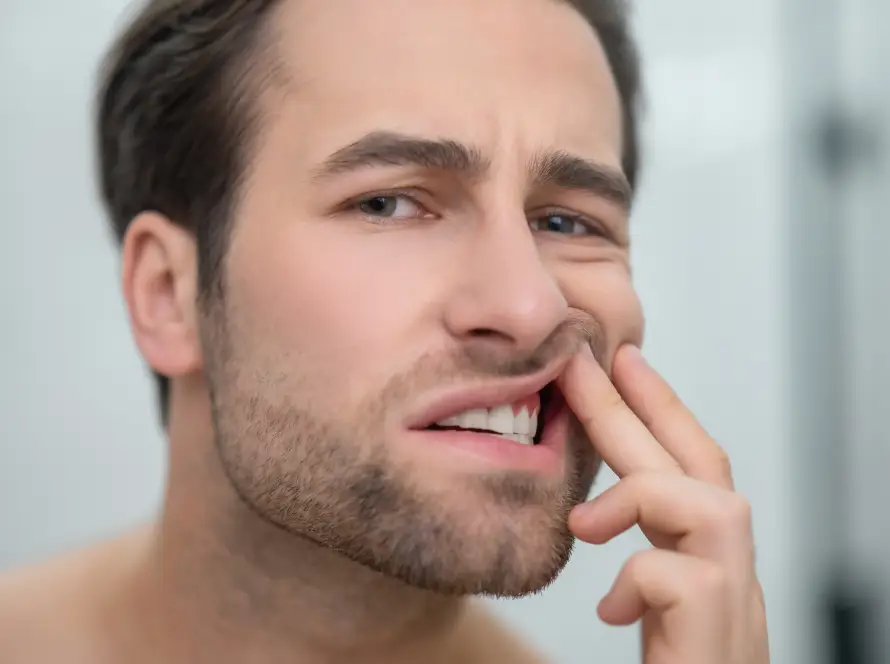Tooth extraction is a dental procedure that involves the complete removal of a tooth from its socket in the jawbone. This procedure is typically carried out by a dentist or an oral surgeon and is usually done when a tooth is severely damaged, infected, or impacted.
There are various reasons for tooth extraction, including tooth decay, advanced gum disease, overcrowding, fractured teeth, or preparation for orthodontic treatment. The removal of a tooth may be necessary to prevent further oral health issues and alleviate pain or discomfort.
Tooth extraction can be performed using different techniques, such as simple extraction or surgical extraction. Simple extraction is typically done when a tooth is visible and can be easily loosened and removed. On the other hand, surgical extraction is necessary for more complex cases, such as when a tooth is impacted or broken below the gumline.
Before undergoing a tooth extraction, your dentist or oral surgeon will evaluate your dental health, take X-rays, and discuss the procedure with you. They will also provide you with pre and post operative instructions to ensure a smooth recovery and minimize the risk of complications.
It is important to follow these instructions carefully to promote healing and avoid potential problems. Understanding what to expect and how to care for your mouth after a tooth extraction will help you recover comfortably and prevent complications.
Can I Smoke After a Tooth Extraction?
Smoking after a tooth extraction can significantly delay the healing process and increase the risk of complications. It is strongly advised to refrain from smoking for at least 48 to 72 hours after the procedure.
- Smoking introduces harmful chemicals into the oral cavity, which can irritate the extraction site and impede the formation of blood clots, essential for healing.
- The act of smoking can also create negative pressure in the mouth, potentially dislodging the blood clot or causing a condition called dry socket, which can be extremely painful.
- The nicotine in cigarettes can constrict blood vessels, reducing blood flow to the extraction site and hindering the delivery of oxygen and necessary nutrients for healing.
To help avoid complications and promote faster healing, it is best to avoid smoking altogether during the initial days after a tooth extraction. Instead, consider using nicotine replacement therapy or seeking support to overcome the urge to smoke. It is also crucial to follow your dentist’s post operative care instructions diligently to ensure a smooth recovery process.
Risks and Complications
- Delayed healing: Smoking after a tooth extraction can significantly delay the healing process. The chemicals present in cigarettes constrict blood vessels and reduce blood flow to the surgical site, affecting the supply of oxygen and nutrients necessary for proper healing. As a result, the extraction socket may take a longer time to close and heal.
- Increased risk of infection: Smoking introduces harmful toxins and bacteria into the mouth, increasing the risk of infection at the extraction site. Infections can cause pain, swelling, and may require additional treatment, such as antibiotics or further dental procedures.
- Dry socket: One of the most common complications associated with smoking after a tooth extraction is the development of dry socket. Dry socket occurs when the blood clot that forms in the extraction site becomes dislodged or dissolves prematurely. Smoking increases the chances of this happening, leading to severe pain, bad breath, and the need for additional treatment.
- Delayed pain relief: Smoking can interfere with the effectiveness of pain medications prescribed after a tooth extraction. The nicotine and other chemicals in cigarettes can interfere with the body’s ability to absorb and utilize pain medication effectively, potentially prolonging discomfort and pain during the recovery period.
- Poor healing quality: Smoking reduces the oxygen supply to tissues, slowing down the healing process and compromising the quality of healing. This can result in a weak and unstable extraction site, making it susceptible to complications in the future, such as gum recession, bone loss, or the need for additional dental work.
- Increased risk of dry mouth: Smoking can contribute to dry mouth, a condition characterized by reduced saliva production. Dry mouth can lead to oral health problems such as tooth decay, gum disease, and infections. It can also exacerbate the discomfort associated with a tooth extraction and impede the healing process.
- Negative impact on overall oral health: Smoking has detrimental effects on overall oral health, including staining of teeth, bad breath, compromised immune function, and increased risk of oral cancer. Continuing to smoke after a tooth extraction can further worsen these risks and impact the long term health of the remaining teeth and oral tissues.
It is crucial to minimize the risks and complications associated with smoking after a tooth extraction. Following the dentist’s instructions, including refraining from smoking during the designated healing period, can significantly improve the chances of a successful recovery and reduce potential complications.
How long after a tooth extraction can I start smoking?
After a tooth extraction, it is crucial to give your body enough time to heal properly. Smoking, however, can interfere with this healing process and increase the risk of complications. It is highly recommended to refrain from smoking for as long as possible after a tooth extraction.
Ideally, you should avoid smoking for at least 48 to 72 hours following the extraction. This initial period is critical for blood clot formation and promoting healing in the socket. Smoking during this time can disrupt the clotting process, leading to a condition called dry socket, which can be extremely painful and delay the healing process.
Nevertheless, it is worth noting that even after the initial 48 to 72 hours period, smoking should continue to be avoided if possible. Smoking introduces numerous harmful chemicals and toxins into your mouth, which can slow down the healing process and increase the risk of infection. Additionally, the suction created while smoking can dislodge the blood clot or cause irritating movements in the extraction site, again increasing the chances of developing dry socket.
To ensure a smooth and quick recovery, it is best to refrain from smoking entirely for at least a week or until your dentist gives you the green light. This period may vary depending on the individual case and the specific instructions given by your dentist. If you are finding it difficult to quit smoking during the recovery period, it may be helpful to seek support from a healthcare professional or explore smoking cessation programs that can assist you in quitting.
Ultimately, giving up smoking during the tooth extraction recovery phase is essential for minimizing complications and allowing your body to heal properly. By following the guidance of your dentist and abstaining from smoking, you can improve your chances of a successful and speedy recovery.
Why Is It Important To Not Smoke After Tooth Extraction?
After a tooth extraction, it is crucial to abstain from smoking for a certain period of time. Smoking can have detrimental effects on the healing process and overall oral health. Here’s why it is important to avoid smoking after a tooth extraction:
- Delayed Healing: Smoking interferes with the body’s natural healing process by reducing blood flow and oxygen supply. This can lead to delayed healing of the extraction site and increase the risk of complications such as infection.
- Increased Risk of Dry Socket: Dry socket is a painful condition that occurs when the blood clotting at the extraction site dissolves or becomes dislodged. Research suggests that smoking significantly increases the risk of developing dry socket, prolonging the recovery process.
- Impaired Immune Response: Smoking weakens the immune system, making it more difficult for the body to fight off infections. This can make the extraction site more susceptible to bacteria, further increasing the risk of complications.
- Wound Disruption: The act of smoking involves inhaling and exhaling smoke, which creates suction and pressure in the mouth. This suction can dislodge the blood clot that forms after extraction, leading to bleeding and delaying the healing process.
- Increased Pain and Discomfort: smoking can irritate the already sensitive tissues in the mouth, causing increased pain and discomfort after a tooth extraction. Nicotine and other chemicals in cigarettes can also slow down the healing process, making it more difficult to manage pain effectively.
It is advised to strictly follow the dentist’s instructions on post extraction care, which includes avoiding smoking for the recommended duration. By refraining from smoking, individuals can promote faster healing, reduce the risk of complications, and improve their overall oral health.















